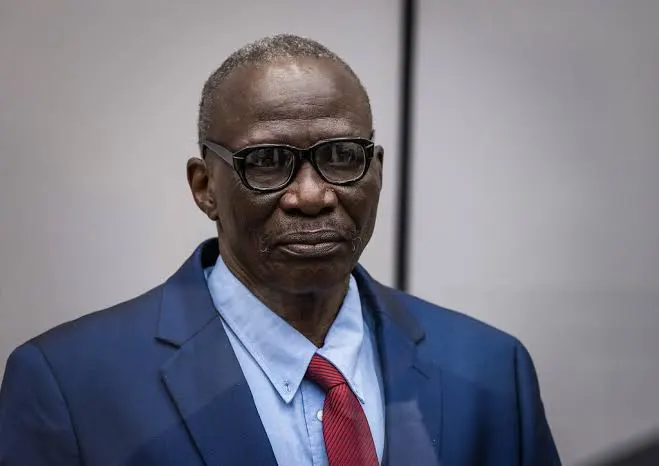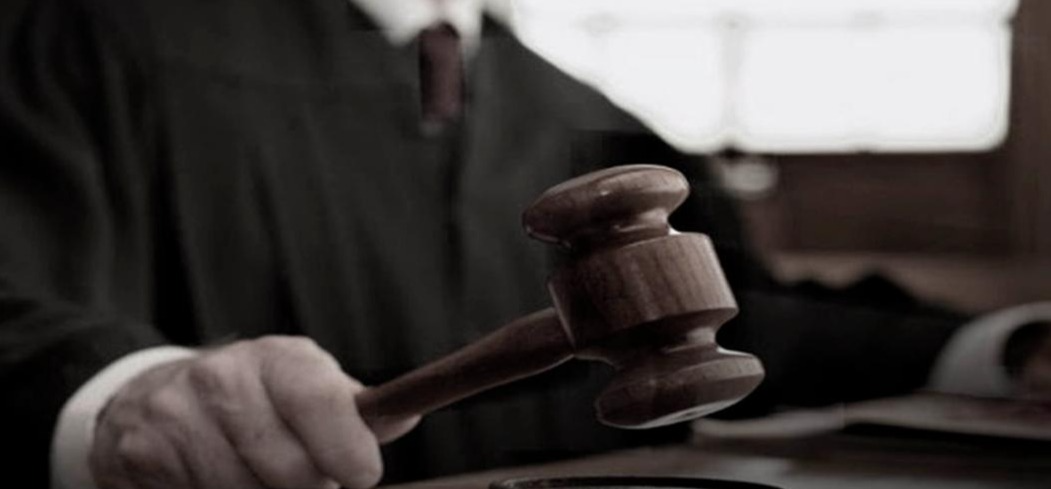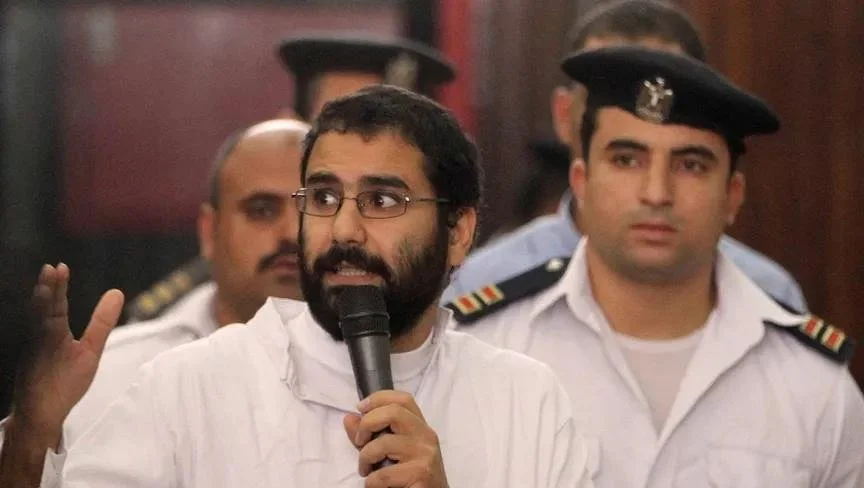September 2025
In this Newsletter:
The International Criminal Court will issue its verdict against Kushayb in October 2025.
Tariq Misho, the “Palm Beach Dancer” in Alexandria, was arrested while performing a dance routine.
Children in El-Fasher have been under continuous siege for over 500 days by the Rapid Support Forces, undermining their access to food, clean water, and healthcare.
A “fake doctor” running a treatment center in Egypt has been arrested.
Fact-Finding Committee: The army and the Rapid Support Forces are once again implicated in war crimes.
After being accused of engaging in prostitution and debauchery, a transgender woman is sentenced to one year in prison, with bail set at 3,000 pounds to suspend the sentence.
President Sisi grants a pardon to prisoners, including Alaa Abdel Fattah.
The International Criminal Court will issue its verdict against Kushayb in October 2025
The International Criminal Court (ICC) announced that it will issue its judgment against the former Sudanese militia leader, Ali Kushayb, on October 6, 2025, three years after his trial began in The Hague. Kushayb faces 31 charges of war crimes and crimes against humanity, including murder, rape, and looting in the Darfur region between 2003 and 2004, a period that witnessed some of the bloodiest phases of the Sudanese conflict.
Kushayb’s case is among the most prominent ICC cases linked to the Darfur conflict, which began following investigations referred by the UN Security Council in 2005 under Resolution 1593, marking the first referral of its kind to the Court. Since then, the ICC has issued arrest warrants against several Sudanese officials, including Omar al-Bashir, Ahmed Haroun, and Abdel Rahim Mohamed Hussein, on charges related to crimes against humanity. Two decades after these events, the pursuit of justice in Darfur remains complex and politically charged, with many Sudanese viewing the case as a test of the international community’s credibility in addressing impunity. At the same time, the Court is accused of politicizing justice and selectively pursuing cases, particularly as the referral originated from the Security Council, dominated by major powers with intertwined interests in Sudan and the region.
The ICC is scheduled to announce its judgment publicly in a session broadcast live on its official website, amid local and international anticipation. Under the Rome Statute, Kushayb may be convicted or acquitted, with the option to appeal the decision. However, this development comes at a sensitive time, as the situation in Darfur continues to deteriorate, with renewed reports of violations and ethnically motivated displacement. ICC Prosecutor Karim Khan announced in early 2024 his intention to expand investigations and issue new arrest warrants related to crimes in western Darfur, before launching a campaign in June to gather evidence from conflict areas, including the city of El Fasher.
Politically, this development is seen both as an attempt to revive the international justice process amid the absence of domestic accountability in Sudan and as a Western leverage tool within a broader context of reshaping relations with Sudan post-war. While victims demand accountability, some fear that the case could become an international bargaining chip, used more to influence Sudan’s political scene than to serve justice itself.
Tariq Misho, the “Palm Beach Dancer” in Alexandria, was arrested while performing a dance routine
Egyptian authorities arrested the young man known as “Tariq Misho” in Alexandria after a video of him dancing on a public beach went viral. Although the incident may appear trivial and harmless on the surface, the intervention of security forces under the pretext of “violating public decency” reflects the state’s use of its security apparatus to regulate social behavior and restrict public space.
This incident occurs within a broader context of moral and social surveillance exercised by the authorities, particularly over youth, where the discourse of “public decency” and “community values” is invoked to justify restrictions on freedom of expression and movement in public spaces. Such cases cannot be understood in isolation from the social disciplining policies used by the state to enforce a singular notion of what is “acceptable” or “proper,” reproducing a conservative narrative that criminalizes difference and aligns society with the moral standards of the authorities.
The arrest of “Misho” quickly became a public controversy, sparking debates between those who condemned the security intervention in a simple individual act and those who considered the dancing a breach of tradition. What is particularly striking is how popular reactions reveal the normalization of security and moral discourse within society itself, with a portion of public opinion aligning with the state’s logic of punishing nonconformity. Consequently, the incident goes beyond a mere individual case to become evidence of the narrowing of personal freedoms and the ongoing erosion of safe spaces for self-expression, under a state that imposes its guardianship over bodies, taste, and daily behavior in the name of “order and virtue.”
Children in El-Fasher have been under continuous siege for over 500 days by the Rapid Support Forces, undermining their access to food, clean water, and healthcare
The city of El Fasher in North Darfur witnessed a horrific attack targeting the Al-Daraja neighborhood mosque, resulting in the deaths of 11 children and dozens of civilians. This crime, which shook local and international public opinion, is part of an escalating series of assaults on civilians in a city that has been under siege for over 500 days, amid the absence of any effective protection from the international system, which has limited itself to formulaic statements of “shock” and “unacceptability.”
What is happening in El Fasher cannot be treated as an isolated incident; it is an extension of a systematic policy adopted by the Rapid Support Forces targeting civilians, particularly the most vulnerable groups—women, children, and the elderly—through siege, starvation, and deprivation of water and medicine. These practices are not random violations; they are deliberate tools of war aimed at breaking local communities and stripping them of their capacity to endure. In contrast, the muted international responses reveal a structural political silence that treats the tragedy as a humanitarian issue rather than a war crime demanding accountability. This silence, cloaked in language of “humanitarian concern,” effectively legitimizes the continuation of these crimes and keeps civilian suffering within the bounds of what the international system tolerates.
Unless these crimes are met with clear accountability policies and genuine political will, El Fasher will remain a symbol of the international conscience’s failure in the face of military force. What is required is not more statements of pity, but an explicit acknowledgment that targeting mosques, hospitals, and water sources is part of a systematic war strategy aimed at depopulating the city.
As a queer feminist organization, we view what is happening in El Fasher as exposing the core of structural patriarchal and military violence inflicted on fragile and marginalized bodies—bodies that are erased first in times of war. Therefore, the required stance is not only humanitarian but also radically political and ethical, confronting the structures that produce this violence rather than merely its visible consequences.
A “fake doctor” running a treatment center in Egypt has been arrested
The Egyptian Physical Therapy Syndicate announced the arrest of a mechanical engineering technician for impersonating a licensed physical therapist, as part of what the syndicate describes as campaigns against “fraudsters and intruders” in the profession. While the incident received widespread media coverage and was used to showcase the syndicate’s vigilance and commitment to protecting the professional field, at its core it reveals the fragility of the health system and the structural crises within it.
The incident occurs amid a decline in public trust in official health institutions and a widening gap between citizens’ needs and the system’s capacity to meet them. While the syndicate places the blame on “intruders,” public discourse largely ignores the state’s failure to regulate the health sector and ensure equitable access to medical services. The insistence on framing the issue as one of “individual lawbreakers” serves to absolve public policies of responsibility for creating an environment that allows such phenomena to proliferate. Weak oversight, lack of transparency, and subordinating healthcare to market logic and profit all make citizens the most vulnerable to systematic exploitation disguised as individual errors.
Although the syndicate boasts of closing hundreds of unlicensed centers and prides itself on “cleaning up the profession,” the repetition of such incidents reveals that the problem is deeper than superficial campaigns. It reflects a malfunctioning health system managed with a security- and procedure-oriented mentality rather than a preventive and professional approach. The focus on controlling “fraudsters” conceals the absence of fundamental reforms in the structure of medical regulation, as crises accumulate within a healthcare economy built on class privileges and ineffective institutional oversight. Ultimately, the campaign appears more as an image-polishing effort than a genuine attempt to address the root of the dysfunction—a dysfunction that is reproduced by the same system that claims to combat it.
Fact-Finding Committee: The army and the Rapid Support Forces are once again implicated in war crimes
The latest report from the Independent Fact-Finding Mission on Sudan reveals that the situation in the country goes far beyond isolated “violations,” representing instead a systematic war based on policies of extermination and structural violence. Based on field testimonies and documentation, the report holds both the Sudanese Armed Forces and the Rapid Support Forces responsible for war crimes and crimes against humanity, including extrajudicial killings, torture, forced displacement, attacks on civilians and infrastructure, and the use of starvation as a weapon of war against hundreds of thousands of civilians under siege, particularly in the city of El Fasher.
The report shows that the legitimacy discourse adopted by the Sudanese army to justify its military operations has completely lost credibility in light of documented crimes committed by both sides of the conflict. While the army claims to protect the nation, it is deeply involved in systematic repression, whereas the Rapid Support Forces exercise widespread violence grounded in sexual enslavement and ethnic persecution as tools of domination and control.
This collusion between military and militia powers reproduces the very structures that sparked the war: a patriarchal, militarized, and racist system that treats the bodies of women and marginalized communities as arenas for political and social revenge. Thus, the crimes cannot be reduced to individual behavior but must be understood as part of a power structure that legitimizes extermination through its institutions, political discourse, religious rhetoric, and media narratives.
In response to these facts, the government continues to contain the situation through formal national investigation committees that focus solely on condemning the Rapid Support Forces while deliberately ignoring the army’s crimes, reflecting an effort to reproduce impunity and conceal institutional complicity.
Justice, as the report emphasizes, cannot be achieved within the current state structures. It requires the extension of the mandate of the international fact-finding mission and the expansion of its powers to ensure comprehensive accountability for all parties. This accountability must center on the testimonies of survivors, making them the foundation of any future political or judicial process that rejects compromises between peace and justice. What is required is not only the cessation of war but the dismantling of the violent and patriarchal structures that have turned Sudan into a testing ground for extreme forms of extermination, and the redefinition of the country’s future based on dignity, bodily integrity, and the right to life.
After being accused of engaging in prostitution and debauchery, a transgender woman is sentenced to one year in prison, with bail set at 3,000 pounds to suspend the sentence
A judicial ruling in Egypt sentenced a transgender young woman and several others to prison on charges of “immorality and prostitution,” in a case that once again highlights the use of law as a tool for stigmatization and moral control. The accusations, framed under vague public morality laws, were not based on clear criminal acts but rather on the gender identity and nonconforming expression of the accused.
This case is not an exception but part of a broader series of trials in which the legal and security apparatus is deployed to reinforce systematic oppression against bodies, sexualities, and identities that deviate from dominant norms. Laws criminalizing “immorality” and “prostitution” serve as a cover to provide legal legitimacy to gender and sexual discrimination, reproducing a state discourse that links “public order” to compliance with hegemonic masculinity.
A notable aspect of this case is the deliberate conflation of administrative violations with moral criminalization, as the accusations were combined with the alleged operation of an unlicensed health center to justify legal action. This strategy reveals an authoritarian logic that dresses up rights violations in a legal guise, presenting repressive practices as measures of control and organization rather than organized persecution.
The ruling against the transgender young woman confirms that the state continues to use the judiciary and security apparatus as instruments of control over bodies and public space, at a time when justice is supposed to protect individual rights and ensure human dignity. Therefore, the verdict is not merely a legal incident but part of a broader political project aimed at reproducing patriarchal dominance and regulating the boundaries between “acceptable” and “forbidden” expressions of gender and sexuality.
At the same time, this case exposes the fragility of legal protection for transgender individuals and underscores the urgent need to reconsider laws that criminalize difference and legitimize systemic violence against marginalized groups. The absence of equality before the law not only undermines individuals’ trust in justice but also entrenches a reality in which society is governed by moral guardianship rather than the logic of rights.
President Sisi grants a pardon to prisoners, including Alaa Abdel Fattah.
Egyptian President Abdel Fattah el-Sisi issued a pardon for the Egyptian-British activist Alaa Abdel Fattah and several other prisoners, following a request from the National Council for Human Rights. The decision included prominent figures in the human rights and political scene and came after years of domestic and international calls for the release of individuals detained on political grounds, particularly amid deteriorating prison conditions and a wave of international human rights criticism directed at Egypt.
Alaa Abdel Fattah had been sentenced to five years in prison on charges of “joining an illegal group” and “spreading false news,” following more than two years of pretrial detention. While the National Council for Human Rights framed the release as a humanitarian measure aimed at supporting the psychological and social stability of families, the broader political context suggests that the decision was primarily part of state image management for the international community, rather than a genuine review of repressive policies or judicial reform.
Presidential pardons often coincide with sensitive political or diplomatic milestones, such as international conferences or official visits, serving as symbolic gestures to ease external pressure and polish the state’s image as open to dialogue and human rights, without challenging the authoritarian structures that enable ongoing political detention.
Despite popular and international approval of Alaa Abdel Fattah’s release, the decision does not represent institutional progress in justice or freedoms, but rather a continuation of selective pardons that give authorities discretionary control over the human rights landscape. The pardon does not erase the political nature of the case nor alter the reality that hundreds of activists and journalists remain imprisoned under similarly vague charges. Thus, the release functions as a symbolic act that reproduces a logic of control, leaving individual freedoms subject to the will of the executive rather than the rule of law or guarantees of justice.
Addressing the roots of the human rights crisis in Egypt requires genuine legal reform, including the repeal of laws that criminalize expression and dissent, rather than relying on superficial measures that serve the state’s political public relations.







